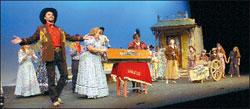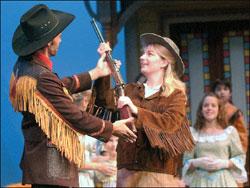Hello Conrad,
My name is SImeon *. I currently study piano and can play a variety
of instruments. I would like to ask you first off, how do i become a
producer of music. I would really like to know what are some of the jobs
that you have to do as a producer. Is it necessary to have contacts in the
music industry, and how exactly do i get about getting these contacts.
Thanks
SImeon *
***********************
Hi SImeon,
I’ll go in a little detail here, but need to tell you first off I might not be the best person to ask. My past experience tells me people don’t usually want to hear what I have to say…..in other words, they don’t like the answer.
First of all, to be a music producer…..you just need to produce music. I’m not being a smart alec here. Most people starting out waste their time worrying about contacts instead of focusing on the art, improving their skills, etc. The only way you do that is by doing it. As you go along, each project will teach you something.
DO EVERYTHING – DON’T JUDGE
When I was 21 I was playing piano in a mall 30 hours a week. It was an absolutely humiliating job, but I had to eat and was bound and determined I would only do music jobs. A customer came up and asked me to play Crazy, the country standard by Willie Nelson made famous by Patsy Cline. I was deeply offended they would even think of asking a classical musician to play country. My response was, “M’am, I play MUSIC.” I was dead serious at the time. In my mind country was not music. Well over the next ten years I played a lot of country music for a living, learned to appreciate how intricate it really is when it’s done WELL. And later even played the Grand ‘Ol Opry on national tv.
Now when it comes to the studio, I know a wide variety of country music styles and techniques which are used a LOT in the studio. You’d be very surprised how much it’s used on all sorts of soundtracks. I think of that story anytime I’m quick to judge a style as “not being music” – it usually is a sign that I don’t really understand the subtle nuances of the style. Be open minded.
DON’T BE AFRAID TO ASK
Know what I learned just this week? I learned that cellos have mutes. I never knew that before. Maybe everyone else does, but I didn’t. So I had the cello player perform several times for me with and without the mute so I could tune my ears to the difference. I also learned a flute has two different places that can be adjusted to set the overall pitch. These are things I would not have learned if I hadn’t asked. I asked these questions in front of my orchestra. I’m not embarrassed to ask about what I don’t know about, and have found that people do not judge you for not knowing. In fact people are excited to share their niche knowledge with you. When I was younger I would be more hesitant to ask, that it might be a sign that I didn’t know something. OF COURSE IT IS! Learn from everyone around you.
THEORY
Unless you’re going to do sampled hip hop or cut n paste productions, you need a good base in music theory. Learn all your major/minor scales and chords – and learn them so you don’t even have to think about it. At least learn everything up to 9th chords so you can do them in your sleep, I have to admit I still have to think about 11th and 13th chords sometimes depending on the voicing.
Why are scales and chords important? You’re conducting an orchestra and you hear the chord out of tune, you should be able to notice it’s the third that’s out of tune and be able to pick out the instrument too. This needs to be done fast, second nature. You get better by doing it. Aren’t working with orchestras? Same thing applies to a punk band: Let’s say you’re producing a punk band and one of the guitar strings is out of tune in a way that’s not “cool” (many times being a little out of tune on indie guitar stuff can be very cool) – You should be able to tell the player which string he needs to fix, whether it’s sharp or flat, and when your ears get really tuned in maybe you can tell him by about how much (your third string is 20 cents sharp, or tell him just to raise it a pinch). How do you know it’s the third string? You should know the strings on a guitar. Another thing you’ll just pick up as you produce projects.
START PRODUCING
You might be too young to know who Carol Burnett was, but her advice way back to starting artists was to book yourself solid round the clock with work regardless of whether it paid or not. Then once you’re booked up start replacing the free work with paid work as you go along. It really works. Of course you have to have a real passion for it to pull that off. But if you don’t have a passion for it then do something else. My motto for YEARS was “music or death”, and I meant that quite literally. As I’ve gotten older I see life a little broader now, but not much. 🙂
STAY AWAY FROM PROSPECT PROJECTS
My advice is to stay away from people that put a big carrot in front of you and talk big money. In my experience they NEVER come through. I’ve done big money projects, but they were always ready to move, none of this dragging it out for months stuff. Now if YOU want to back a project on your own terms that’s a different story. A good friend of mine from high school backed a little Seattle band several years ago with a goofy name. In fact about 5 years ago he emailed me wondering how I had done so much. Well times turned the tables on us – I’m currently trying to re-establish my record label and the band he backed became a cash cow for him – band’s name is Deathcab for Cutie. (Needless to say he doesn’t have time to return my emails now!)
JOBS TO DO AS PRODUCER
In my book, a music producer “produces results” – that’s what “producer” means to me. Whatever it takes to get ‘er done. You may have to pull from ridiculous sources, and of course you will have to be able to negotiate the rocky waters of artist personalites and temperaments. ALWAYS listen to what the client wants – it doesn’t matter if you are “right”, it matters what the client likes. They are paying (if it’s a job for a client). Clients will demand the impossible, and that’s when it gets fun because you have to learn new things whether you like it or not. As a producer you should understand acoustics, audio engineering, music theory, music performance, copyright law and have a general knowledge of the workings of any instrument, mic or audio unit you are using.
THE ABSTRACT PART
People have to like what you produce, at least the people paying the bills have to like it. When I started out it seemed like people rarely liked what I did, or I got lukewarm responses. It made me really mad, and each project I would work harder and harder on it. Now when I do projects it’s very, very rare people don’t like what I do – in fact I can’t recall right now when someone DIDN’T like something I did. I don’t know what changed, the whole time I was doing my best. Maybe I got better, maybe I “sold out” and tuned my ears to the general public, maybe I got better at reading clients for what they wanted. In any case, it’s experience – and as your experience grows you create your reputation. People want to know when they come to you that they will get what they want, and that should directly reflect in the amount of money you can command for your services too. Focus on the art, not the money – and the rest should follow. (I think…….)
DONT TAKE WHAT YOU CANNOT DO
Make sure you and the client have a clear understanding of what is expected, and don’t oversell yourself into something you cannot do. At some point you will have to deliver. This is also part of creating your reputation, before you accept a job make sure you’ve laid out all the necessary details of the project and if possible get it in writing.
Now go start producing…… 🙂
Conrad
 Lyrica Mueller is having a tough time combining aspects of the real Quaker sharpshooter from the late 1800s with the wide-eyed, perky stage persona conveyed in Irving Berlin’s colorful musical “Annie Get Your Gun.�
Lyrica Mueller is having a tough time combining aspects of the real Quaker sharpshooter from the late 1800s with the wide-eyed, perky stage persona conveyed in Irving Berlin’s colorful musical “Annie Get Your Gun.� Mueller and the rest of the 30-member cast spent Monday evening getting familiar with the elaborate set of the show that runs July 14-30 at McIntyre Hall.
Mueller and the rest of the 30-member cast spent Monday evening getting familiar with the elaborate set of the show that runs July 14-30 at McIntyre Hall.